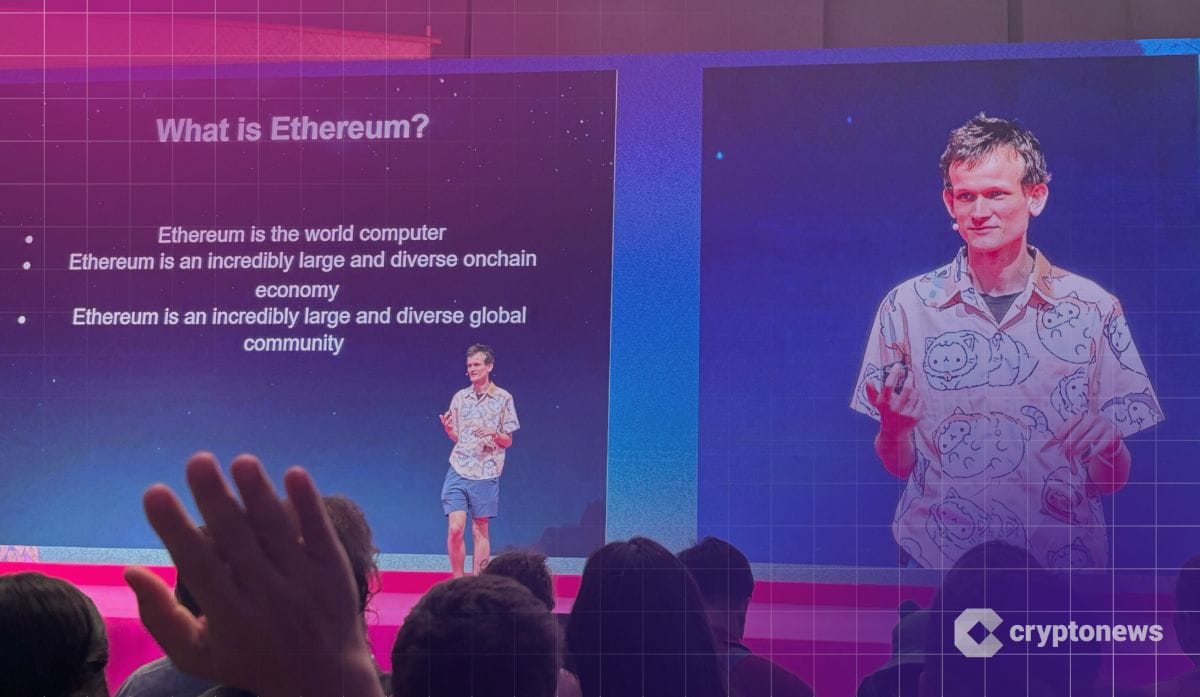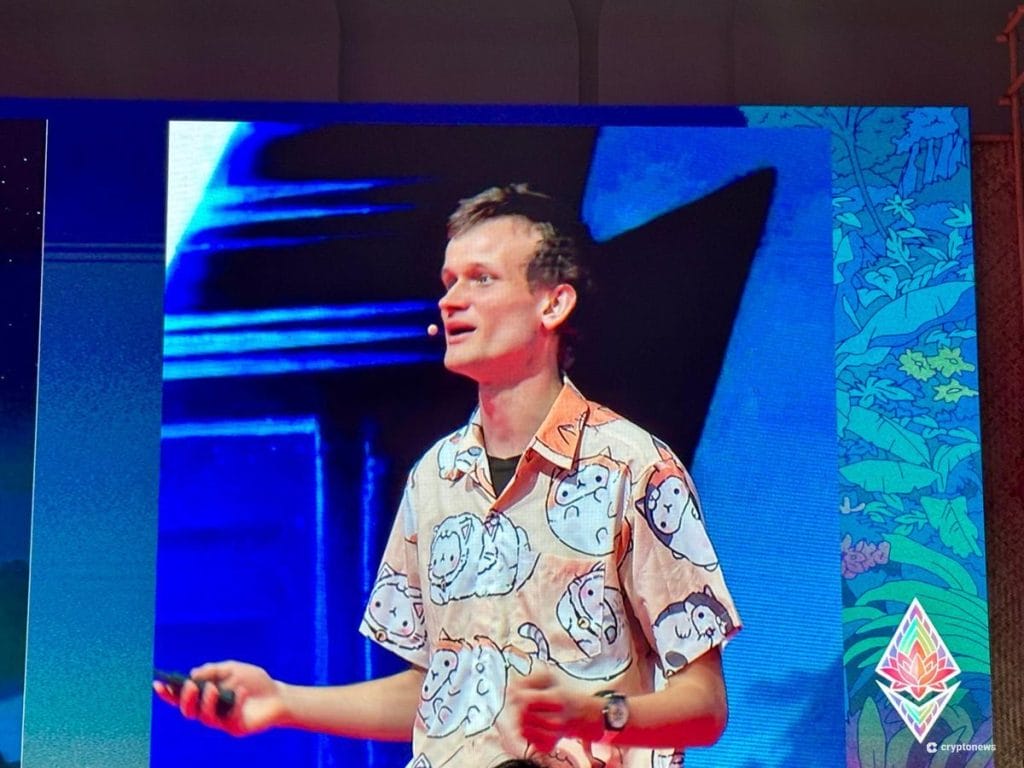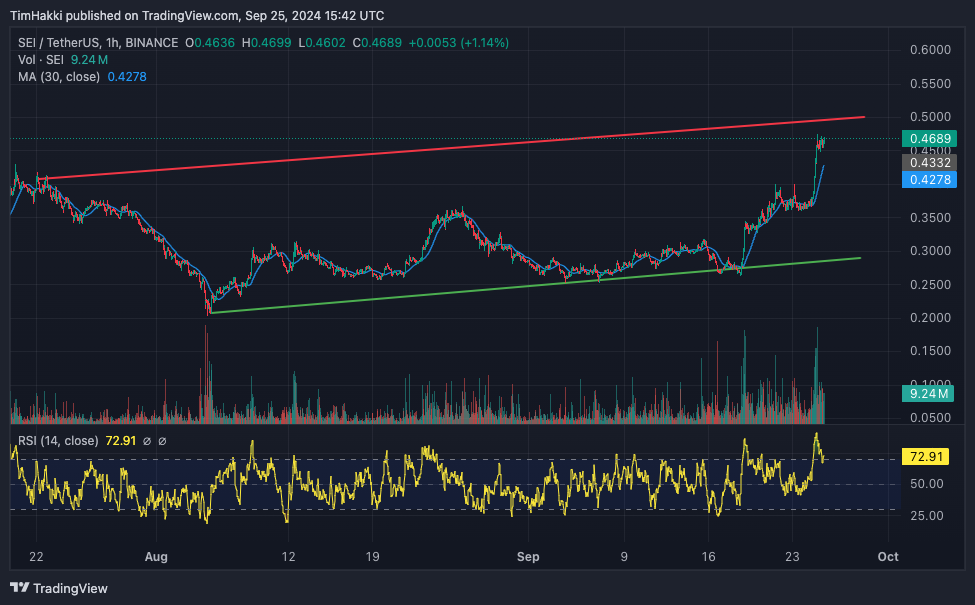Last updated:
 Why Trust Cryptonews
Why Trust Cryptonews

At the Devcon 2024 event in Bangkok, Vitalik Buterin, Ethereum’s co-founder, spoke about his vision for the platform’s future, reinforcing its commitment to decentralization, scalability, and inclusivity.
In front of a packed room, Buterin discussed Ethereum’s journey from its inception to its current position as a leading decentralized network and pointed to achievements in transitioning to the proof-of-stake (PoS) model and developing scalable, sustainable solutions.

He noted that this evolution is central to Ethereum’s role as a “world computer,” an ecosystem fostering a diverse on-chain economy and a global community. One of the key elements of Ethereum’s evolution was the shift from proof of work (PoW) to proof of stake, an upgrade that marked a new era in blockchain technology.
Ethereum is often called the world computer because it allows a decentralized network of computers (or nodes) to collectively run applications and execute complex computations without relying on a central authority.
“Ethereum is the world computer, an incredibly large and diverse on-chain economy, and an incredibly large and diverse global community…all at once.”
Proof-of-Stake Transition Strengthened Network
Buterin emphasized how PoS, alongside Ethereum’s multi-client design, strengthens the network’s decentralization and security. This transition has allowed Ethereum to evolve from a high-energy-consumption model to a more sustainable, secure, and equitable system.
In Buterin’s words, Ethereum is now better equipped to serve as the backbone of a decentralized digital economy, promoting inclusivity and accessibility through improved governance structures and enhanced network resilience.
Buterin also focused on Ethereum’s approach to scalability, a critical factor for the platform’s future growth and adoption. He stressed the importance of layer one as the foundational blockchain, which prioritizes security, decentralization, and reliability.
Optimistic Rollups Aim to Improve Ethereum’s Scalability
However, during his Devcon opening speech, Vitalik Buterin also recognized the important role of layer two solutions, like Optimistic Rollups and ZK Rollups, in expanding Ethereum’s capabilities.
These scaling technologies allow Ethereum to process a high volume of transactions more efficiently by handling them off-chain and then reconciling them on layer one. This dual-layer system allows Ethereum to maintain a decentralized infrastructure while addressing the demand for higher transaction speeds and lower fees.
Layer 2 Fees Drop Further, Making Ethereum Affordable
“This year, Layer 2 fees went down from 50 cents to less than 0.1 cent,” said Buterin. “This is a huge change. For an incredibly wide number of applications, Ethereum has gone from being basically unaffordable to being completely affordable.”
This reduction in fees has lowered the barriers for developers and users alike, positioning Ethereum as a more accessible and versatile platform. Lower costs expand Ethereum’s potential to support a broader array of applications, from micro transactions and financial services to gaming and digital identity solutions.
Beyond technical improvements, Buterin highlights Ethereum’s potential as a platform for mixed financial and non-financial applications, aiming to create value beyond monetary exchange.
By fostering diverse use cases, Ethereum is pursuing broader societal goals, aligning with projects that serve public goods and support the global community. In his view, Ethereum’s community, comprising developers, builders, and users from all over the world, plays a crucial role in defining and expanding the platform’s potential.
Buterin concluded with a call for continuous improvement. He acknowledged that while Ethereum has made significant strides, ongoing upgrades will be crucial to maintaining its decentralization, security, and accessibility.
He also stressed that future developments should focus on building a more robust and inclusive platform to meet the needs of a diverse user base.
By prioritizing decentralization, enhancing scalability, and promoting societal applications, Buterin envisions Ethereum as a key player in the digital landscape, capable of supporting an open, resilient, and fair internet economy.



